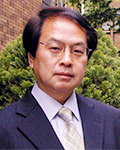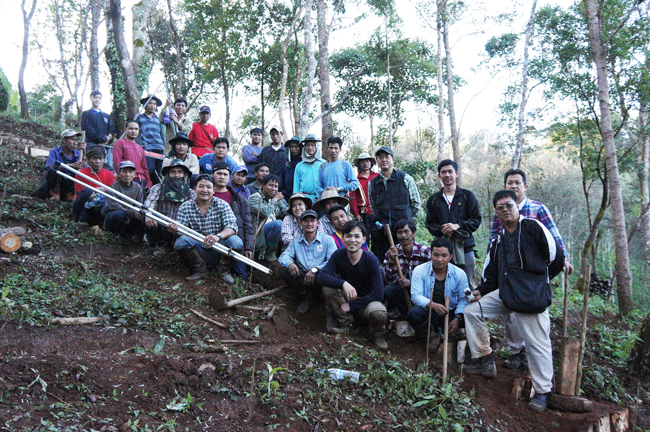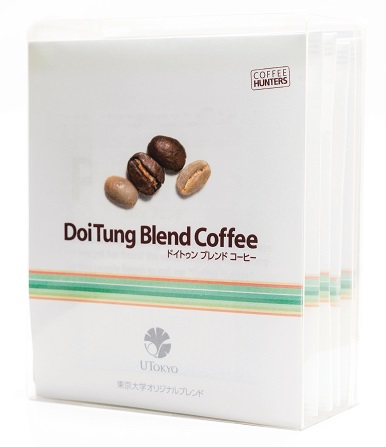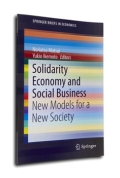Replacing poppy fields with coffee farms

Contributed by Yukio Ikemoto
Professor
Institute for Advanced Studies on Asia
http://www.ioc.u-tokyo.ac.jp/eng/faculty/prof/ikemoto.html
Did you know that a UTokyo original blend of coffee has been available since last spring at UTokyo's official store, the University of Tokyo Communication Center? The coffee is fragrant and savory, but that is not its only selling point. A professor who has dealt with problems of income inequality and poverty asks you to use your cup of coffee as an opportunity to consider the present situation faced by coffee farmers.

When I began my research on Thailand in the mid-1980s, its northernmost region bordered by Myanmar and Laos was called the Golden Triangle and was a place famous for the cultivation of poppies which were used to produce opium. The region was crime-ridden and dangerous, and entry to this area by the public was tightly regulated. In the late 1980s, however, Thailand’s economy grew rapidly, and neighboring countries also embarked on economic reforms. Accordingly, Thailand promoted economic advances into its neighboring countries under the slogans of “the Baht Economic Zone” and “from a battlefield to a marketplace.” Around that time (1988), the Doi Tung Development Project was started. The purpose of this project was to prohibit poppy cultivation and replace poppies with other crops, such as coffee. Doi Tung is the name of a mountain, and coffee produced in this area is now being sold as a UTokyo original blend of coffee. The Doi Tung Development Project is one of the projects funded by the Mae Fah Luang Foundation, which the late Princess Srinagarindra, the Princess Mother of the current King of Thailand, established in 1972. The Foundation was created to help the impoverished minorities living in the mountains of northern Thailand.

I began to get involved in researching coffee at the end of the 1990s, when I had started studying the poverty of minorities living in the Central Highlands (a plateau area bordered by Cambodia) in Vietnam. Unbeknownst to many, Vietnam is currently the world’s second highest coffee-exporting country, with the Central Highlands region functioning as the country's main coffee production center. Poverty and coffee are closely related to each other. For years, coffee cultivation had been promoted around the world as a means to reduce poverty. As this promotion resulted in a continual increase in coffee production, the prices of coffee beans plummeted, leading to the impoverishment of coffee farmers around the world once again. This trend was called a "coffee crisis." People in developed nations, meanwhile, welcomed this trend because it meant they could buy coffee at lower prices. However, this situation cannot be considered sustainable. As coffee farming has become unprofitable because of plunge in coffee prices, farmers have come to spend less time on cultivating coffee or have switched to other crops entirely, lowering the overall quality of coffee produced worldwide. Under these circumstances, the “sustainable coffee” movement has gathered momentum. This movement aims to make the coffee industry sound and sustainable for all stakeholders from farmers to consumers. Fair trade-certified items are a well-known product of this movement. For my part, I have communicated the reality of coffee production centers to the public by regularly holding a series of lectures called "Coffee Salons" at the University of Tokyo, together with Mr. Yoshiaki (Jose) Kawashima, CEO of Mi Cafeto Co., Ltd. Starting in 2005, Coffee Salons have been held for 43 times during 10 years up through this year (2015). We have held Coffee Salons not only at UTokyo but also in Kobe, Nagoya, Fukuoka and Sapporo.
Recently, Mr. Kawashima was appointed as an advisor to Doi Tung Coffee and will assist the project in teaching cultivation techniques and in enhancing coffee quality. This event inspired me to begin researching Thailand's coffee. Under these circumstances, the UTokyo original blend of coffee came into existence. What stands behind Doi Tung Coffee is the social message that we have made and will continue to make efforts to find solutions to the poverty suffered by minorities living in the mountains of northern Thailand, as well as to environmental problems. While taking a break to savor this delicious blend of coffee, we would be happy if you could also use that time as an opportunity to think about our efforts.
* Note: Available at the University of Tokyo Communication Center (UTCC), which is located to the north of the Akamon Gate. It is also available online: https://utcc.u-tokyo.ac.jp/products/detail.php?product_id=6022 (Japanese language only)
** This article was originally printed in Tansei 31 (Japanese language only).
* Note: Available at the University of Tokyo Communication Center (UTCC), which is located to the north of the Akamon Gate. It is also available online: https://utcc.u-tokyo.ac.jp/products/detail.php?product_id=6022 (Japanese language only)
** This article was originally printed in Tansei 31 (Japanese language only).







